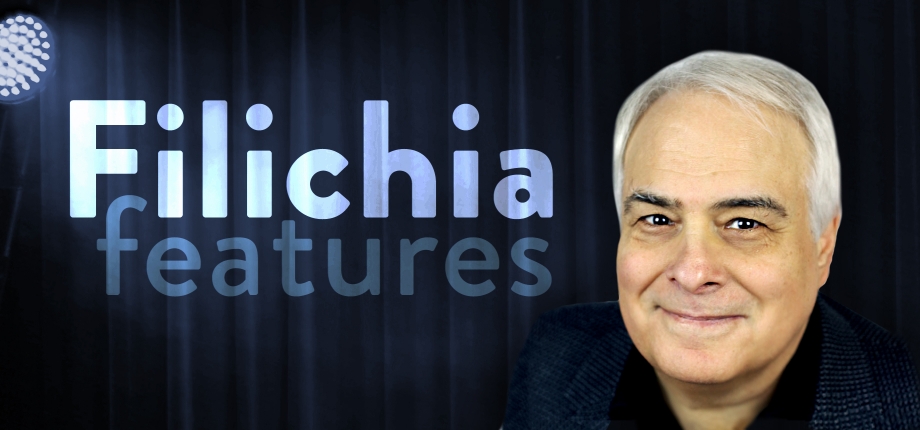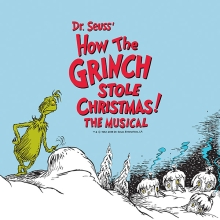Filichia Features: Pippin the Short

Filichia Features: Pippin the Short
“Book by Roger O. Hirson. Music and lyrics by Stephen Schwartz.
Theo Ending by Mitch Sebastian.”
So went the credits on a recent production of Pippin that I attended. Wait, why not just cite Hirson and Schwartz? And who’s this Mitch Sebastian and what’s a “Theo ending”?
You may well know the story of Pippin, which was a big enough hit in 1972 to become the eighth-longest-running musical in Broadway history. Failing that, you may have caught up with it when a 2013 production not only won the Best Musical Revival Tony, but also was the first (and only) musical to see women from the same show win in the Best Musical Actress (Patina Miller), Best Supporting Musical Actress (Andrea Martin) and Best Director of a Musical (Diane Paulus) categories.
Miller’s win was also unprecedented in another way. She was the first woman to win a Best Musical Actress Tony for a role that had already resulted in a Best Musical Actor Tony (for a Ben Vereen in 1972-73).
Actually, if you saw this revival, you did see the “Theo Ending by Mitch Sebastian.” Theo is the son of Catherine and apparently will be the stepson of Pippin, if he and Catherine do marry.
The altar seems to be where Pippin is headed, although he believes going there is tantamount to putting his head on a chopping block. After all, he’s no less than the son of Charlemagne (742-814), the first Holy Roman Emperor.
If the truth be told, Pippin - known in history as Pepin the Short (714-769) – was actually Charlemagne’s father. Hirson did play super-fast and extraordinary loose with history, but so had Schwartz in 1967 when he wrote Pippin Pippin (yes, he used the title character's name twice) as a student at what is now Carnegie Mellon University. Perhaps some historians have taken umbrage, but this fiction hasn’t bothered many theatergoers in the last 44 years.
So, in one of the most famous Broadway songs from the ‘70s, Pippin proclaims in song “Rivers belong where they can ramble. Eagles belong where they can fly. I've got to be where my spirit can run free. Gotta find my corner of the sky.”
Making matters more difficult for Pippin is that he’s been deemed “the scholar of the house" which means everyone has great expectations for him. "I promise not to waste my life on commonplace pursuits," Pippin vows. “I want to be dedicated to something that has meaning.”
Don’t we all?
It’s this conundrum that makes Pippin a good first show for teenagers to either see or perform. Kids who often say "I don't know what I want to be when I grow up" are, when you come right down to it, searching for their corners of the sky.
Is the army the answer? Pippin does try going to war. But when he spies a man whose head has been separated from his body, he realizes that war is not for him.
What’s next? Well, there’s always rampant, mindless sex. Alas, this isn’t the right time for Pippin to find Ms. Right. So he goes to his grandmother Berthe for advice. In her terrific “No Time at All,” Berthe delivers some of Pippin’s best messages, ones that kids should learn: 1) life goes by fast and 2) "There's one thing to be sure of, mate: there's nothing to be sure of."
Pippin also teaches kids that a first "love" doesn't necessarily stay around forever. They also learn that a politician can't please everyone, but that he or she gets into more trouble still by retracting promises made. And let’s not forget that ol' standby "Power corrupts."
“I will never, never, never, ever find it,” Pippin says, not remotely aware of what “it” is. And then he meets Catherine, who admits to being "ordinary." No: Catherine is a great mother and will be a good partner to Pippin. Her son Theo could use a role model, too, which Pippin could become.
But after you once envisioned that your future will have you head of a company, can you settle for merely sitting at the head of the kitchen table as “just” a husband and stepfather?
That’s where Pippin delivers its best message. If one person can make two people happy, he’s done a great thing with his life.
Happy ending, right? Yes, but life isn’t that cut and dried, is it? So thought Mitch Sebastian when he was directing a London production around the turn of the new century. He’d had an idea that once Theo reached adolescence, he’d sing “Rivers belong where they can ramble. Eagles belong where they can fly …”
Yes, every kid must go searching for his own identity and purpose, as Sebastian smartly realized. Pippin come full circle in the circle of life.
How nice that Sebastian gets credit. Believe me, many a musical theater creator with Schwartz’s power would have listened to Sebastian, said “Thank you” then taken the suggestion as well as all the glory. But that’s not Schwartz. In all my decades of interviewing celebrities, I have never found anyone more willing to give credit where credit is due. Many times I’ve said to him, “I love what you did with (fill-in-the-blank),” only to hear him say “That wasn’t my idea. It was (so-and-so’s).”
So I’m not surprised to see that the Pippin I saw last month cited Sebastian in this unique way. Schwartz knows, as producer Max Gordon once said, “If the pie is big enough, there are enough slices for everybody.”
And no state fair has ever had a pie as large as Pippin.
You may e-mail Peter at pfilichia@aol.com. Check out his weekly column each Monday at www.broadwayselect.com and Tuesday at www.masterworksbroadway.com. His book, The Great Parade: Broadway’s Astonishing, Never-To-Be Forgotten 1963-1964 Season is now available at www.amazon.com.

























